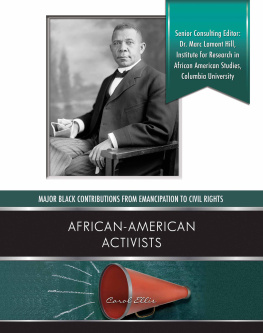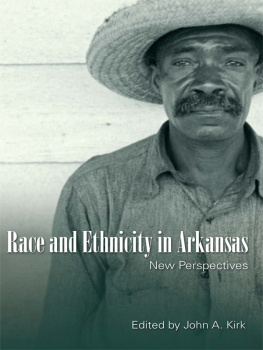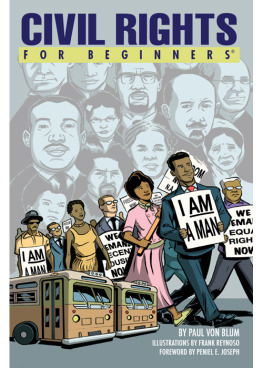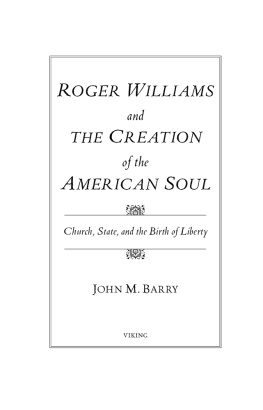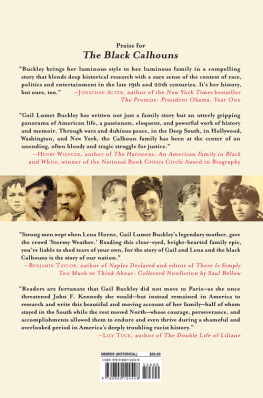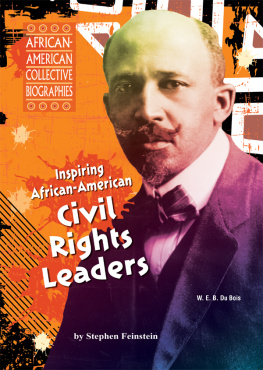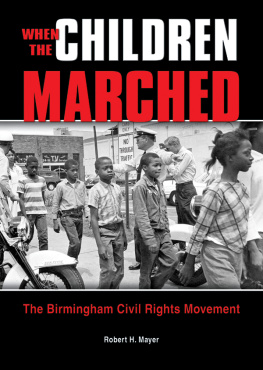African American Religion and the Civil Rights Movement in Arkansas
African American Religion and the Civil Rights Movement in Arkansas
Johnny E. Williams

www.upress.state.ms.us
The University Press of Mississippi is a member of the Association of American
University Presses.
Copyright 2003 by University Press of Mississippi
All rights reserved
Manufactured in the United States of America
11 10 09 08 07 06 05 04 03 4 3 2 1

Library of Congress Cataloging-in-Publication Data
Williams, Johnny E.
African American religion and the civil rights movement in
Arkansas/Johnny E. Williams.
p. cm.
Includes bibliographical references and index.
ISBN 1-57806-545-3
1. African AmericansCivil rightsArkansasHistory. 2. Civil
rights movementsArkansasHistory. 3. African American civil rights workersReligious lifeArkansas. 4. African
AmericansArkansasReligion. 5. African American
churchesArkansasHistory. 6. Religion and
politicsArkansasHistory. 7. ArkansasRace relations.
8. ArkansasChurch history. I. Title.
E185.93.A8 W55 2003
261.7089960730767dc21 2002151813
British Library Cataloging-in-Publication Data available
For my parents
Raymond and Inez Williams
For my grandmother
Bethel Medlock Cooney (Big Momma)
For my brothers
Raymond Jr., Michael, Byron, Rickey, and Timothy
and for
all those who came before and all those who will follow
CONTENTS
PREFACE
Jesus Christ allows us to do things through his grace. All the things you may do in life, the dissertation that youre doing for your PhD., youre depending on Gods grace to give you the strength to make the proper contacts, to be able to bring all your stuff together to put it in proper form so that you can say to those persons judging you or sitting in judgment of you in regards to the degree, heres the situation. Grace, grace. You [accomplish your goal] despite those people who say you cant do it, the doubters. I like grace because everything is possible through him. Even when you do wrong its because he allows you to do it. Whatever you accomplish, whatever goal you might have, whatever you fail to do, he allows us to determine our progress. However far you go is dependent upon his grace.
Arkansas Civil Rights Participant, 1991
The grace that this respondent spoke of was an integral part of my life growing up in Little Rock, Arkansas. My father, mother, and grandmother were very active members in the Baptist church, and had strong religious identities that helped our poor family of nine survive tough emotional and financial times. My parents and grandmother believed that it would be by the grace of God that we would overcome our situation. Eventually, we did. My two mothers (I include my grandmother as my mother since we called her Big Momma and she basically raised my five brothers and me while my mother and father each worked two jobs to keep our family afloat) and father, who was a Baptist deacon, instilled in me the desire for social justice and an inquisitiveness to understand why religion affected them in the way that it did. On numerous Sundays, Big Momma would get happy or shout after an inspiring spiritual song or sermon. She would run up and down the church aisles shouting, Yes, Lord, or Thank you Jesus. One day, as an eight-year-old, I mustered enough courage to inform my grandmother that her antics were embarrassing and asked her why she behaved this way during a song or sermon. Her response: Honey, you cant control yourself when the Holy Spirit is upon you. You just got to move. Somewhat older and wiser I am now starting to understand Big Mommas point that religious beliefs affect human behavior in ways beyond rational comprehension.
My grandmothers actions and explanations provided me with a nascent understanding of cultural meanings sway over human behavior. The insight I gained from the beliefs and behaviors exhibited by my grandmother and parents in the Baptist church would later make me keenly aware of the inability of the prevailing social movement theory to explain cultures role in motivating and sustaining political participation. When I took a graduate social movements course in 1988, the predominant theoretical analyses of social movements acknowledged the importance of culture in the emergence of collective action, but maintained that the availability of resources (e.g., money, leaders, and facilities) were more important determinants in the launching and likely success of collective action. This perspective was called the resource mobilization approach. A variant of this approach, the political process theory, particularly piqued my interest. Although the political process theory acknowledged the importance of culture in facilitating social movements, it, too, like its parent theory, argued that culture is not sufficient in and of itself for initiating collective action. The theory claimed that movements are less the product of culture than beneficiaries of shifting political conditions that open up political and economic systems for change. I considered this approach overly rationalistic because it argued that since discontent is always present among aggrieved groups, the crucial constituent for translating grievance into action is the perception that instability within institutions creates vulnerability for change. By relying on shifting political conditions to explain variations in interpretation of social situations, this approach insufficiently focuses on the role of cultural meanings in directly and independently precipitating social protest. As a result, political process theory could not sufficiently explain why some people initiated social protest when political conditions and the availability of resources were limited. Given my experiences in the African-American church, it was apparent that it was a mistake for the political process model to downplay cultures (relationships, deeply felt commitments, aspirations, and hopes) impact on political participation. Consequently, I began thinking about the origins, development, and maintenance of the Civil Rights Movement in cultural terms. This interest, together with my belief that culture can be a powerful resource in defeating racial and social oppression, culminated in the writing of my dissertation, which was an important but preliminary starting point for my investigation of the relationship between culture and collective action, and in the more intricate and nuanced writing on cultural processes and social action embodied in this book.
In the course of writing this book, I frequently felt I had bitten off more than I could chew. Trying to extrapolate from mounds of data the nuts and bolts of cultural processes that encourage or discourage peoples involvement in political participation is tedious but rewarding work. While gathering the data for this book, I interviewed many interesting and thoughtful people who thought nothing of their contributions to the Civil Rights Movement. They viewed their activism not in terms of individual interests but as an obligation to better society for everyone, in particular future generations. Writing this book was cathartic because it allowed me to introspectively examine my self-conception as an African-American Arkansan whose understanding of reality was profoundly shaped by a devout family who required me to attend church four to five days a week. Regular church attendance as a kid led to religious service burn out. Nowadays I attend church when the spirit moves me or my mother coerces me into going. My mother and some of my religiously oriented brothers perceive my lack of religious engagement as a backsliding problem I need to resolve. Consequently, I am constantly engaged in a sort of battle of wits with my mother, brothers, and sisters-in-law over what they perceive as my chaotic but, I believe, logical thoughts on religion and society. My folks often ask me: how can you research and write on the effects of religion but shun the church and Jesus Christ? I always provide them with a succinct answer: As a scientist and trained skeptic, it is hard for me to grasp that there is only one way to encounter God. The diversity found on this planet in terms of peoples, cultures, and living things, and in the universe with its infinite number of galaxies, planets, and stars suggests to me that there is an immeasurable number of ways of experiencing religion. The existence of this diversity suggests that my systematic examination of religion may be just another ritual for reaching God. So, it is problematic to imply that my research and writing about religions effect on everyday life doesnt contribute something to our understanding of faith simply because I dont regularly attend church and profess my allegiance to Jesus. Despite our disagreement, my family frequently lets me know how excited and happy they are to have a family member who examines African-Americans experiences in Arkansas.


